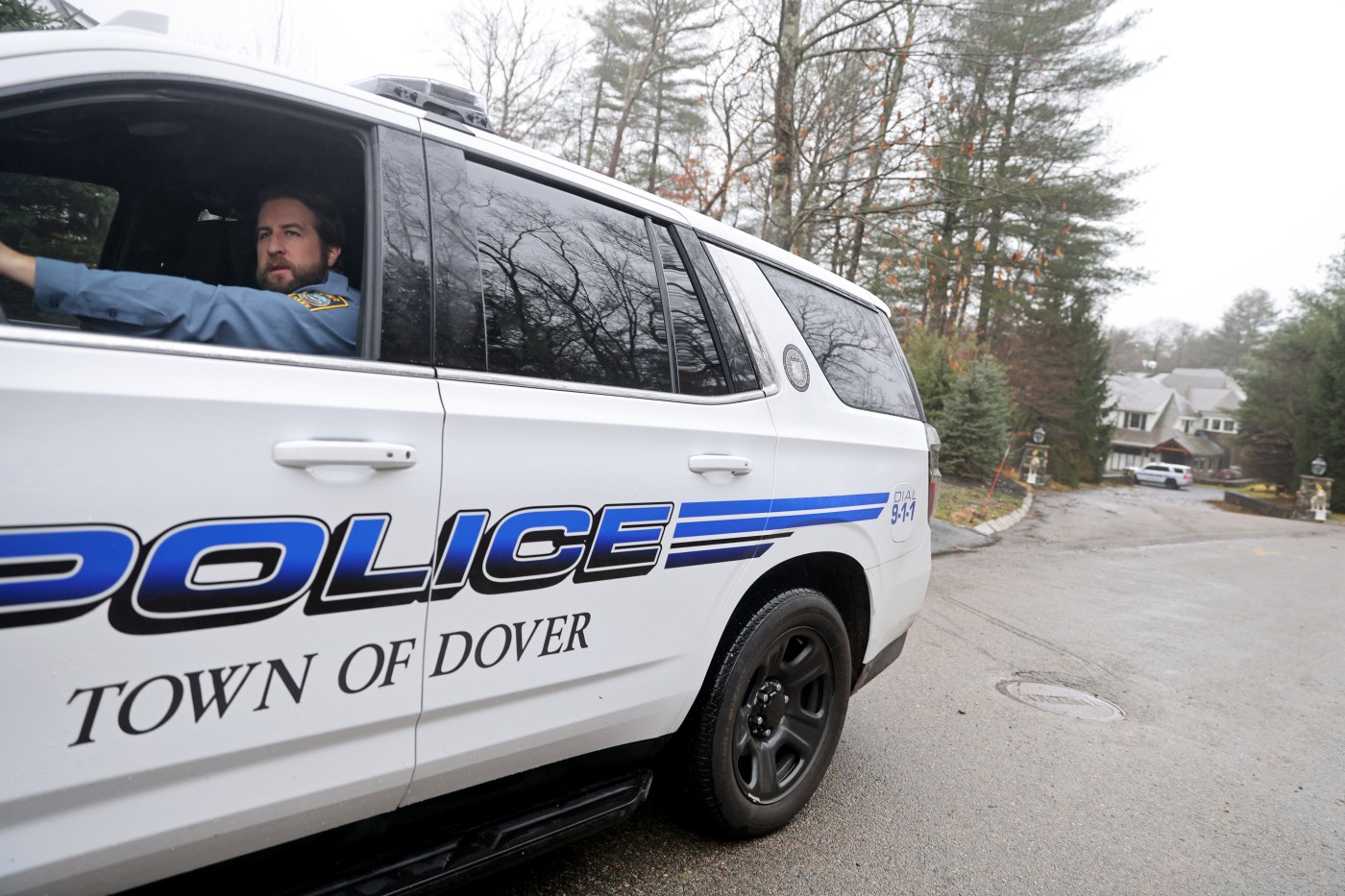
Massachusetts SafeLink a resource for domestic violence victims and survivors
Coverage of tragic domestic violence incidents in communities in and around Boston can be “very triggering” for those struggling with their own relationships.
That’s why advocates are urging people in need to reach out for assistance for themselves or others as they process the deaths of a husband, wife and teenage daughter in Dover.
Authorities found the married couple and daughter at their home Thursday night in what Norfolk District Attorney Michael Morrissey said appears to be a “deadly incident of domestic violence.”
Morrissey urged those who feel “unsafe” in their relationships to call Massachusetts SafeLink, a statewide 24/7 toll-free domestic violence hotline and resource for anyone affected by domestic or dating violence, at 877-785-2020.
SafeLink is a “connector for survivors or anybody who’s worried about somebody to local domestic violence resources,” said Stephanie Brown, CEO of Casa Myrna, the organization that runs the hotline.
Brown said she usually sees a “slight uptick” in calls following incidents, such as the one in Dover, that receive significant media coverage.
“For somebody who is a survivor, what they’re reading about could be very triggering so they might want to call just to get some support around ‘How do I sleep tonight? How do I get this out of my head?” Brown told the Herald.
“We also do see a slight uptick in calls of people who do not identify as a victim but may have questions about it or wonder ‘Maybe my relationship isn’t that healthy,’” she added.
People who call SafeLink can receive support from advocates, resources, connections to organizations in their local area. The hotline is available at all times of the day in any language through a line that provides interpretation.
About 90% of the calls to the hotline are from victims or survivors, Brown said, with family or friends, social workers, law enforcement or co-workers, making up the remaining 10%.
SafeLink receives about 30,000 calls a year.
“If they wake up in the middle of the night and have a question, or are calling from work,” Brown said, “they can access an advocate who can help them. If they’re thinking about leaving, they can think about what those next steps may be or how to do that safely.”
Oftentimes, Brown said, victims don’t know whether a person they love has the potential to be lethal.
“Domestic violence really thrives in silence,” she said. “Oftentimes, survivors think it’s their fault, they drove this person to be abusive, it’s something wrong with them.”
Brown encourages people who may be experiencing domestic abuse to talk to other family members, someone in the faith community or a domestic violence organization.
“Part of what happens with domestic violence is the abuser first starts that emotional and psychological manipulation and control before it ever gets physical. … Survivors really need somebody else to say ‘You know what? That’s not healthy.’”

